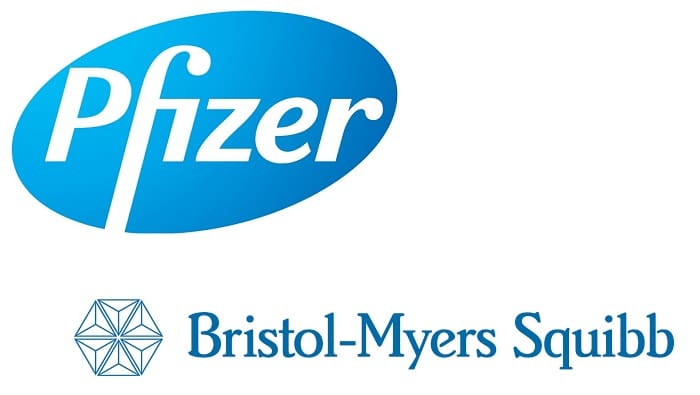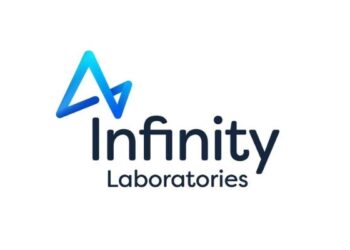Bristol-Myers Squibb Company and Pfizer Inc plan to release real-world data (RWD) analyses of outcomes associated with direct oral anticoagulants (DOAC) among non-valvular atrial fibrillation (NVAF) patients using the U.S. Medicare database – the nation’s largest insurer handling more than one billion total claims per yeari – as well as the Department of Defense (DoD) Military Health System (MHS) during the 2017 American Heart Association (AHA) Scientific Sessions, November 11-15 in Anaheim, California.
The RWD analysis of the DoD MHS database evaluates all-cause, stroke/systemic embolism (S/SE) and major bleeding (MB)-related medical costs associated with Eliquis® (apixaban), warfarin and other DOACs among NVAF patients. Two analyses of the Medicare database evaluate the risk of S/SE and rates of MB in elderly NVAF patients, with one of these analyses focusing on those patients with concomitant coronary artery disease/peripheral arterial disease (CAD/PAD). Since CAD/PAD are comorbidities that substantially increase the risk of future cardiovascular events in patients with NVAF,ii this analysis also evaluates major adverse cardiac events (MACE).
“A clearer understanding of the outcomes of comorbid NVAF populations in routine clinical practice may help inform a patient’s treatment course,” said Renato Lopes, M.D., PhD, Professor of Medicine, Duke University School of Medicine. “More information is needed around stroke and cardiovascular outcomes for NVAF patients with concomitant CAD and PAD, and further exploring DOACs and their association with outcomes such as stroke, major bleeding and MACE events in NVAF patients is an important step towards providing additional information to physicians when considering treatment decisions.”
These analyses stem from the Bristol-Myers Squibb (BMS)-Pfizer Alliance global RWD analysis program, ACROPOLIS™ (Apixaban ExperienCe Through Real-WOrld POpuLatIon Studies), reflecting the BMS-Pfizer Alliance’s continued commitment to grow the body of evidence around the stroke risk reduction effects and other outcomes associated with Eliquis in highly representative patient groups and common clinical settings. Eliquis is a prescription medicine indicated to reduce the risk of S/SE in patients with NVAF.
It is important to note that Eliquis can cause bleeding that can be serious. In addition, premature discontinuation of Eliquis increases the risk of thrombotic events, and epidural or spinal hematomas may occur in patients treated with Eliquis who are receiving neuraxial anesthesia or undergoing spinal puncture. These hematomas may result in long-term or permanent paralysis. Please see full indications and important safety information for Eliquis later in the press release.
“The ACROPOLIS analyses being presented at AHA this year exemplify the BMS-Pfizer Alliance’s focus on providing insights that can support decision-making by healthcare systems, providers and payers,” said Christoph Koenen, M.D., MBA, VP, Development Lead, Eliquis, Bristol-Myers Squibb. “Analyses of the potential comparative effectiveness and costs associated with Eliquis, warfarin and other oral anticoagulants in comorbid NVAF patients can serve as helpful insights to physicians as well as stakeholders across the healthcare delivery spectrum.”
Studies have shown that approximately 18 percent of patients with NVAF had concomitant vascular disease (CAD/PAD). The presence of PAD in patients with NVAF has been associated with higher rates of mortality, cardiovascular events and stroke. Similarly, atherosclerosis (plaque buildup that causes CAD) in patients with NVAF carries a higher risk of cardiovascular events (including cardiovascular death, myocardial infarction, stroke, and hospitalization for an atherothrombotic event).iii
“The BMS-Pfizer Alliance is committed to investigating a wide range of NVAF patient populations, including those at higher risk for stroke such as those with concomitant CAD and PAD,” said Dr. Rory O’Connor, Chief Medical Officer, Pfizer Internal Medicine. “Using insights from routine clinical practice that are not always captured in the controlled environments inherent to clinical trials, these real-world data analyses aim to broaden the knowledge base around the safety and effectiveness of Eliquis and other DOACs in reducing the risk of stroke and other cardiovascular events in diverse NVAF patient populations.”
Contact:
Bristol-Myers Squibb
Media:
Rob Perry, 407-492-4616
rob.perry@bms.com
Investors:
Timothy Power, 609-252-7509
timothy.power@bms.com
Pfizer Inc.
Media:
Steven Danehy, 212-733-1538
steven.danehy@pfizer.com
Investors:
Ryan Crowe, 212-733-8160
ryan.crowe@pfizer.com



















